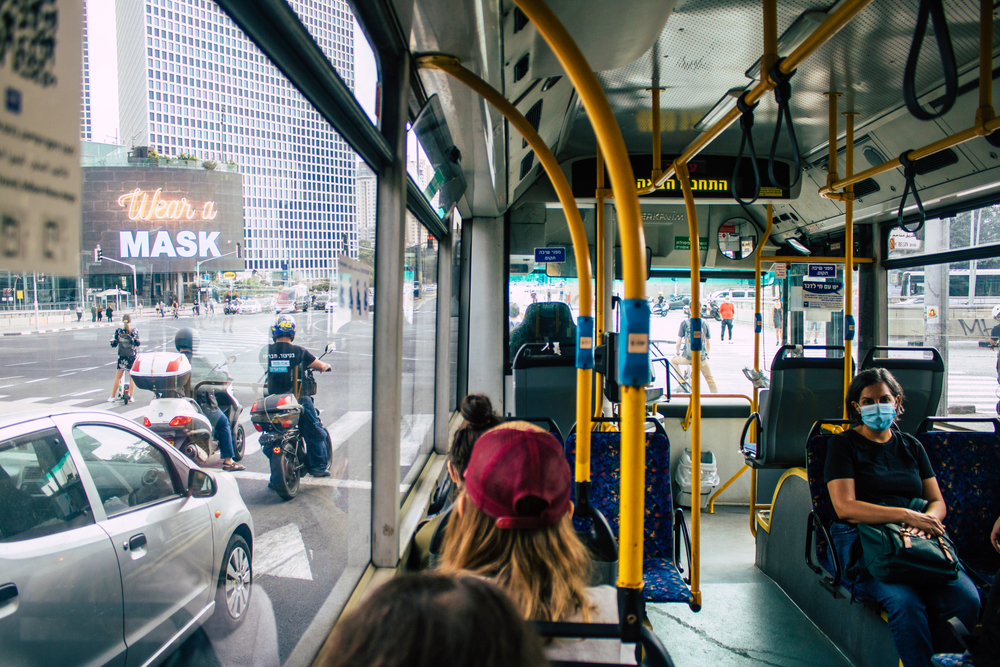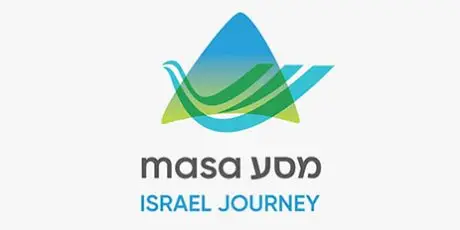Traveling to Israel is exciting, and traveling in Israel even more so – you’re sure to spend a lot of time planning the sights you’ll see, the restaurants you’ll visit, and the hotels where you’ll stay. Like anywhere else, public transportation in Israel should be planned ahead of time. Read below for tips to help you figure out the best way to get around (depending on your plans).

6 Things to Know About Public Transportation in Israel
An Overview of Public Transportation in Israel
There are plenty of ways to get around in Israel – from taking walks to buses to trains to cars. There are also some tricky aspects to securing transportation though, especially if you’re traveling to and from different cities.
One example: one of the most popular treks in Israel is Jerusalem to Masada (to the Dead Sea) and back to Jerusalem: a three-hour round trip drive. You’ll definitely want to plan this kind of stuff out in advance.
1) Public Transportation in Israel via Car Rental
If you plan to travel a lot between cities, renting a car makes the most sense; you’ll be able to visit places on your own schedule knowing you have a car waiting for you wherever you go (parking is a different story). You’d be able to take as long as you like on your trips and not have to worry about catching a train or a bus at a specific time. That being said, traffic can get pretty heavy in Tel Aviv and Jerusalem, so keep it in mind.
To rent a car in Israel, you’ll need to be at least 25 years old and possess a driver’s license from your home country. You don’t usually need to obtain an international driver’s license. We recommend reserving your rental car ahead of time either via phone or online – you’ll thank us when you’re not waiting for hours at a car rental site only to spend more than you would online.
2) Driving in Israel
Don’t worry, people drive on the right side of the road in Israel, just like in the U.S. of A and much of Europe.
Some quick facts and tips:
- Always keep your driver’s license available when you’re in the vehicle just in case of a traffic stop (this is good advice for anywhere though).
- If you travel between April and November, you’re required to keep your headlights on at all times of the day and night.
- The best time traffic-wise to drive in the cities is on Fridays and Saturdays.
- North-south highways in Israel have even numbers and east-west highways have odd numbers.
- There are also three toll roads in the country to be aware of: Highway 6 is a toll road, but there are no toll booths, so rental cars will be charged NIS 50. The Carmel Tunnels do have toll roads, but you can avoid them by driving the Haifa Bay instead. Highway 1 has a toll for a fast lane between Ben Gurion Junction and Tel Aviv.
3) Public Transportation in Israel via Trains
Although trains do not go to Jerusalem, this is still the best mode of public transportation for traveling between Tel Aviv and Ben Gurion Airport and to places along the coast. Be aware that currently, due to the pandemic, the number of passengers is limited on trains in Israel, so you’ll be required to purchase a ticket before you arrive at the station. There have also been some changes to the train schedule, with some routes suspended entirely.
You can try to purchase a train ticket at the station for trains that leave within the hour, but keep in mind that since trains are only running at 50% capacity, you may not be able to get a seat on the train you want. You can use the Israel Railways app to purchase tickets, which will also give you schedule updates and ensure you have a reservation on the train you need.
4) Public Transportation in Israel via Buses
For locals, buses are the most common form of public transportation in Israel. You’ll need a RavKav (a reloadable bus payment card, think MetroCard but green) to travel by city bus – no cash! You can purchase a RavKav card for NIS 5 from the Central Bus Station, train stations, and various locations throughout the cities.
There are three categories of intercity buses: Regular, Express, and Direct, with Direct being the most expensive since it doesn’t stop between pickup and destination. You’ll generally need to purchase a ticket for each leg of your journey and a reservation is required if you plan to travel to Eilat during the summer months. You can purchase tickets to Eilat over the internet, by telephone, or at a ticket booth. A bus stop is designated by a metal yellow sign.
5) Public Transportation in Israel via Taxis
In Israel, taxis are generally inexpensive compared to European and American standards. There are various surcharges for hailing a taxi: luggage, and airport routes, and you’ll pay 25% more for a taxi after dark. You’ll pay a starting fee of about NIS 11 in the cities, and if you need to take a taxi during Shabbat on Friday and Saturday, you’ll also pay an additional fee. A fixed fare is set for airport routes to and from Ben Gurion Airport.
It is recommended that you agree on the fee for your journey with the driver before driving starts, and insist they use the meter the entire way. Although they’re required to do this legally, some taxi drivers will try to convince you it doesn’t need to be used. Also, it’s not customary to tip your taxi driver, as fees are already calculated with the drivers’ payment in mind. We recommend using a taxi app to make things easier and eliminate physical payment.
6) Public Transportation in Israel on Saturdays
Keep in mind: between Friday afternoons and Saturday evenings, public transportation is suspended for Shabbat. What better time to get out of the city – Friday to Saturday is the perfect time for an adventure. If you’re staying put, one benefit of no transportation is that attractions will be less crowded.
When you arrive in Israel for the trip of a lifetime, you don’t want it to be hampered by transportation issues. So, be sure to plan carefully around the transportation in Israel to make sure your trip runs smoothly.
So, there you have it, all your main modes of transportation broken down (or most of them; don’t forget bikes and scooters). Make sure to plan carefully around the transportation in Israel – we don’t want anything getting in the way of your experience of a lifetime, do we?










